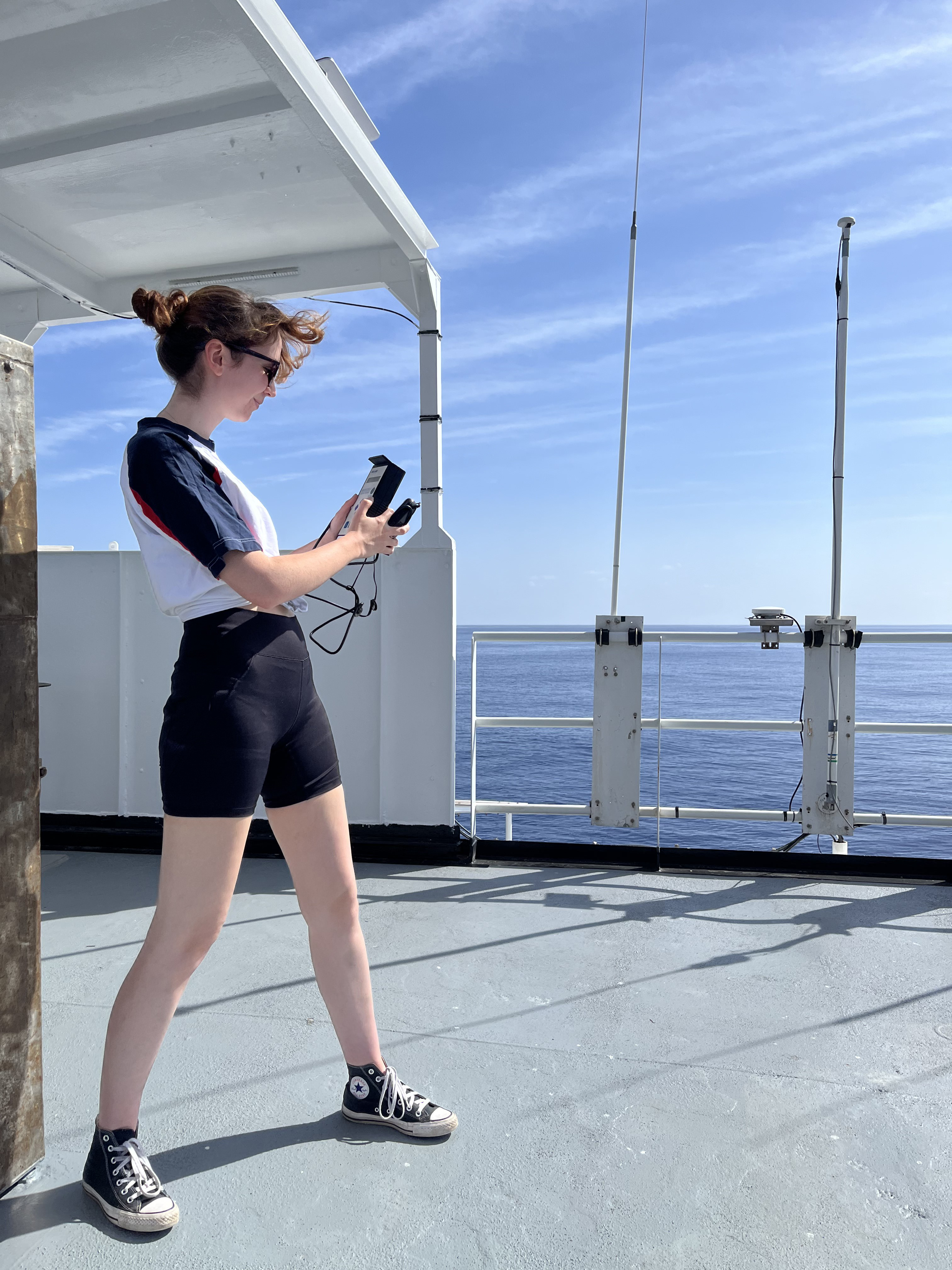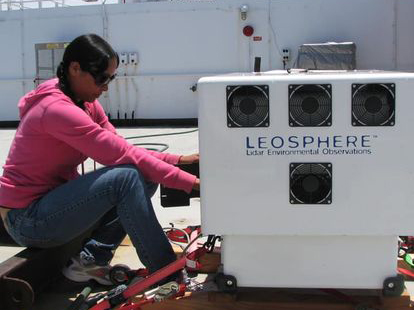Out to Sea Aboard an AEROSE Research Cruise
June 28, 2024
This past February, Ruby Burgess, AOS graduate student, escaped the Wisconsin winter (mild as it was) aboard a research cruise in a remote section of the tropical Atlantic Ocean. Burgess was part of a NOAA Aerosols and Ocean Science Expeditions (AEROSE) campaign that started in Puerto Rico and ended in the Canary Islands. Over three weeks, she and two other students collected data that will join the nearly two decades’ worth of AEROSE in situ measurements dedicated to understanding the effects of long-range aerosol transport over the Tropical Atlantic Ocean.

AEROSE, made possible by a collaboration with NOAA’s Atlantic Oceanographic and Meteorological Laboratory, is a series of trans-Atlantic field campaigns that broadly investigates how aerosols and ozone impact the atmosphere and ocean during transport, their physical and chemical changes, and how well satellites can monitor these processes. Each campaign is unique, and Burgess and her fellow researchers focused on air mass outflows such as the Saharan Air Layer – a dust transport phenomenon – and its effects on the atmosphere and ocean environments, as well as enhancing weather forecast models and validating satellite data.

A draw of the program for students is the opportunity to gain hands-on experience with different instrumentation. Some of the equipment Burgess operated includes a microtops sun photometer, particle microanalyzer, and optical particle spectrometer. There were also multiple radiosonde launches and retrievals of instrumented buoys. As Burgess describes, the trip provided clarity on the type of work she enjoys: “Getting to go out in the field, especially at sea, was a unique opportunity that I’m glad I was able to experience. I discovered how much I like working with instrumentation and being actively part of the data collection process that’s so important for our field.”

For Mayra Oyola-Merced, AOS professor and Burgess’ advisor, having an advisee take part in AEROSE is a full circle moment as she is an alum of the program. That experience was foundational in shaping her journey as an atmospheric scientist and served as a cornerstone of her PhD dissertation. Says Oyola-Merced, “AEROSE was transformative for me. I joined the team shortly after completing my bacherlor’s degree, and at the time I had lost motivation to pursue graduate studies in atmospheric sciences. Being at sea cemented my commitment to research and exploration. On that first cruise, I met three of the most influential figures in my career: Everette Joseph, my PhD adviser; Vernon Morris, AEROSE PI; and Nicholas Nalli, my PhD external adviser. In subsequent trips for my PhD research, I spent over 200 days at sea and was a core member of the science team.”
Nalli is an AOS alumnus (MS and PhD), and Oyola-Merced’s dissertation continued the research he conducted as a PhD student under the supervision of William Smith, AOS emeritus professor whose own research – with co-authors Wayne Feltz and Hank Revercomb at SSEC – inspired the development of AEROSE. As Oyola-Merced notes, “I find it almost serendipitous that my experience working with Nick was fundamental in developing my expertise in satellite remote sensing and modeling, which eventually led me to my role here at UW–Madison.”
The hope is this is just the start of a fruitful partnership between AOS, AEROSE, and other institutions and organizations. “My dream is to continue to support this science and student training through collaboration with my alma mater, Howard University, our partners at NOAA AOML and NESDIS, and to incorporate additional collaborations from CIMSS and SSEC,” notes Oyola-Merced.
In the meantime, another adventure at sea awaits: Burgess, Oyola-Merced, and an AOS undergraduate student will join next year’s AEROSE campaign in February and tie the observations to Burgess’ PhD research. All aboard!
